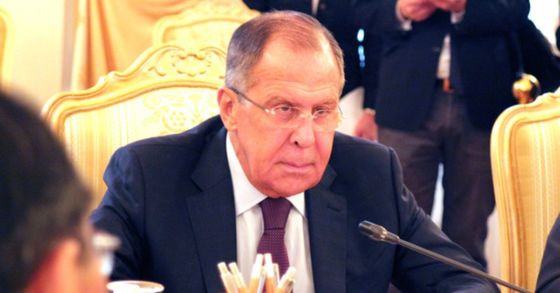Russian Foreign Minister Sergey Lavrov will visit Korea on the 23rd, 2 nights and 3 days. Minister Lavrov visited China on the 22nd prior to his visit to Korea. From the point of visiting Korea after the China-Russian coordination, after the inauguration of Joe Biden’s administration, a structure is being created in which China and Russia cope with the cooperation between the United States and Japan.
![Russian Foreign Minister Sergey Lavrov [연합뉴스]](https://i0.wp.com/pds.joins.com/news/component/htmlphoto_mmdata/202103/22/43aa5920-3c0b-4d20-a039-c0fec2effcd7.jpg?w=560&ssl=1)
Russian Foreign Minister Sergey Lavrov [연합뉴스]
Minister Ravrov’s visit to Korea has been eight years since he visited Korea in November 2013 to serve as Russian President Vladimir Putin. It has been 12 years since the simultaneous visit of the South and North Korea in April 2009 by the Russian Foreign Minister. Minister Lavrov arrives in Korea on the evening of the 23rd and plans to attend the opening ceremony of the’Korea-Russia Year of Interchange’ held by the Ministry of Foreign Affairs on the next day, the 24th. On the 25th, the last day of his visit to Korea, he plans to hold a meeting with Foreign Minister Eui-yong Eui-yong and Korean-Russian foreign ministers.
Minister Lavrov visits Korea on the 23rd after China
The Russian Vice Minister of Defense also coordinated their visit to Korea early next month
New Cold War close to China-Russia on US-Japan cooperation
Following Minister Lavrov’s visit to Korea, Russian Vice Minister of Defense Alexander Pomin is also coordinating plans to visit Korea early next month.to be. Once confirmed, diplomatic and defense officials from Russia will visit Korea one after another, and a series of visits to Korea will take place close to the talks of the Korean-US diplomatic and defense ministers (2+2).
![In March 2018, Foreign Minister Eui-Yong Eui (the then head of the Blue House National Security Office) met with Foreign Minister Sergei Lavrov at the Office of the Ministry of Foreign Affairs of Russia. [타스통신]](https://i0.wp.com/pds.joins.com/news/component/htmlphoto_mmdata/202103/22/e1311a97-628b-442e-b9c9-34c4192f91eb.jpg?w=560&ssl=1)
In March 2018, Foreign Minister Eui-Yong Eui (the then head of the Blue House National Security Office) met with Foreign Minister Sergei Lavrov at the Office of the Ministry of Foreign Affairs of Russia. [타스통신]
On the 22nd, Minister Lavrov went to Beijing on the 22nd at the invitation of Wang Yi, a member of the State Council in charge of China’s foreign affairs and the head of the Foreign Ministry. It is observed that during the talks on the 23rd, Secretary Rabrov and Wang shared the results of the high-level US-China talks held in Anchorage, Alaska, USA on the 18th and 19th, and discussed ways to keep the US in check. China’s state-run Global Times reported earlier on the 18th, “If the solidarity between China and Russia is strengthened, the aftermath of troublemaking after the US had a chain talks with Japan and Korea could be offset.”
In a video conference with the Chinese media released on the 22nd, Minister Lavrov raised his voice, saying, “It is not correct to punish certain countries in today’s international arena, and it is not wise to apply this logic to Russia and China.” Earlier, Russia also summoned its ambassador to the United States on the 21st (local time) in protest against US President Joe Biden’s “Putin is a murderer” remarks. Due to this trend, by the time Minister Lavrov’s visit to China was completed, it was said that China and Russia could make a joint statement against the United States.
![Russian Foreign Minister Sergey Lavrov [AP=연합뉴스]](https://i0.wp.com/pds.joins.com/news/component/htmlphoto_mmdata/202103/22/9beb9666-347d-4f48-90c0-20606a45a3fd.jpg?w=560&ssl=1)
Russian Foreign Minister Sergey Lavrov [AP=연합뉴스]
After the US and China did not make a joint statement at the high-level talks on the 18th to 19th and confirmed the difference in position, the confrontation front between the two sides became more clearIs becoming. The New Cold War between the United States and China, which began under the Trump administration, is not being eased by the Biden administration, but rather is expanding the front line with solidarity with the alliance. The US held a series of meetings of the US-Japan and ROK-US diplomatic and defense (2+2) ministers from the 15th to the 18th, clarifying the policy of checks against China. In particular, the US-Japan joint statement stated’China’ and expressed concern over the human rights situation of Hong Kong and Xinjiang Uyghur, and included public restraint policies on a case-by-case basis.
South Korea has responded with strategic ambiguity between the United States and China, but it is an analysis that the ambiguity policy can be put to the test in this meeting of diplomatic ministers between Korea and Russia. Shin Beom-cheol, head of the Foreign Affairs and Security Center of the Korea National Strategic Research Institute, “Mr. Ravrov will not speak out directly, but at least he will convey the position that’Korea should not participate too actively in the U.S. alliance network’.”Expected.
In the Korea-Russian foreign ministers’ meeting, President Putin’s visit to Korea and trilateral cooperation between the two Koreas in relation to North Korea issues The back can also be raised on the agenda. Earlier in September of last year, in a call with President Putin, President Moon requested a visit to Korea as soon as the Corona 19 situation stabilizes, and President Putin replied, “I will visit with a vaccine made in Russia.” In December of last year, President Putin announced that he would visit Korea as much as possible in the first half of this year, but a specific schedule has not been set yet.
Reporters Lee Chul-jae and Park Hyun-ju [email protected]
![]()
